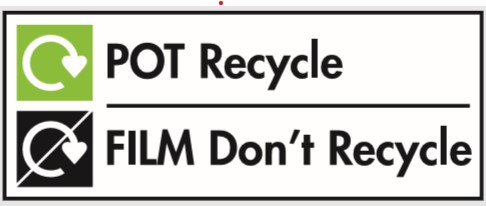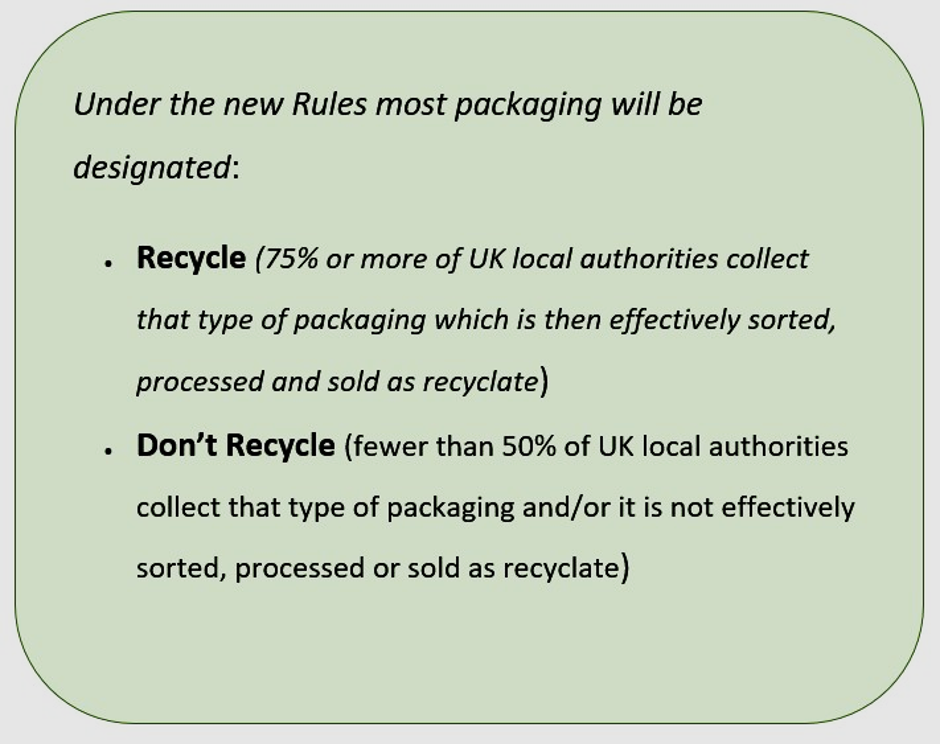OPRL – the On-Pack Recycling Label organisation – launched its new labelling system today (29 January) in a bid to create more ‘transparency’ over the fate of packaging.
The ‘simplified’ labels were first announced last month (see letsrecyle story) and, for the majority of packaging, advise consumers to ‘Recycle’ or ‘Don’t Recycle’.
Previously the labels categorised packaging into three sub-categories: ‘Widely Recycled’; ‘Check Local Recycling’; and ‘Not Yet Recycled’.
An items’ recyclability is calculated on the percentage of councils that collect it and, for the first time, whether it can be processed and marketed effectively as opposed to being sent to landfill or incineration.
The launch of the new labels and accompanying rules are hoped to drive the switch to more sustainable packaging ahead of the introduction of extended producer responsibility measures for packaging in 2023. This was hailed by OPRL chair Jane Bevis as “the biggest launch in our history”.
Confidential
But, the not-for-profit body reiterated that it would not be publishing a full list of what materials are not and not deemed to be recyclable under the scheme, despite calls for this information to be made public.
Ms Bevis explained: “This information is confidential for members only. A full suite of support materials and tools will be available to members to make sure the correct label is used for each packaging design.”
Despite this, the OPRL explained that PVC (polyvinyl chloride) and PS (polystyrene) would be moved from the ‘Check Locally’ to ‘Don’t Recycle’ category, based on Plastics Pact guidelines. Although widely collected, the OPRL said this was because they were ‘mainly landfilled or incinerated’.
Detectable
Meanwhile, the OPRL has moved NIR (Near-Infrared) detectable aPET and coloured rPET, cPET and NIR detectable black PP (polypropylene) for some uses from the ‘Check Locally’ to ‘Recycle’ category.
A handful of packaging types where collections fall between 50-75% of local authorities will retain the intermediary ‘Check Home Collections’ status, such as NIR detectable black trays.
Specialist labels, where bring site or front of store collections exist for at least 75% of the population, remain available for beverage cartons, metal paint cans and PE films, with coffee cups now added.
LARAC
The move to a binary yes/no system was welcomed by Carole Taylor, chair of LARAC (the Local Authority Recycling Advisory Committee) and member of the OPRL Steering Group.
“LARAC welcomes the move to the new binary system for recycling labels, which will be much clearer and simpler for consumers”
This comes despite concerns raised by some local authorities earlier this month that the new labels could potentially increase contamination by deeming materials which are not collected by all local authorities as ‘recyclable’ (see letsrecycle.com story).
Mrs Taylor said: “LARAC welcomes the move to the new binary system for recycling labels, which will be much clearer and simpler for consumers to understand and should help to improve the quality and quantity of recycling collected by local authorities. Reducing non-target materials and contamination in the recycling we collect is very important to ensure costs to councils are minimised.”
Review
The OPRL Ltd said that the new labels and rules followed a ‘comprehensive’ review incorporating consumer testing, data and a 12-strong cross-industry steering group.
Stuart Lendrum, chair of the Steering Group and OPRL Ltd board director, said: “The results deliver our commitment to give consumers clarity on the true recyclability of packaging. As part of that commitment to transparency and accountability we are making our evidence base publicly available today.
“As further new evidence becomes available, we will fine tune these Rules so that we reflect the UK’s developing recycling technology and infrastructure, and further refining of industry technical standards.”
Intermediary status
A handful of fully recyclable packaging types where collections fall between 50-75% of local authorities will retain the intermediary Check Home Collections status. Specialist labels, where bring site or front of store collections enable at least 75 percent of the population to access collection services feeding reprocessing infrastructure, remain available for beverage cartons, metal paint cans and PE films, with the addition of a new Specialist label for coffee cups.
The post Revised on-pack recycling labels go live appeared first on letsrecycle.com.
Source: letsrecycle.com Plastic





